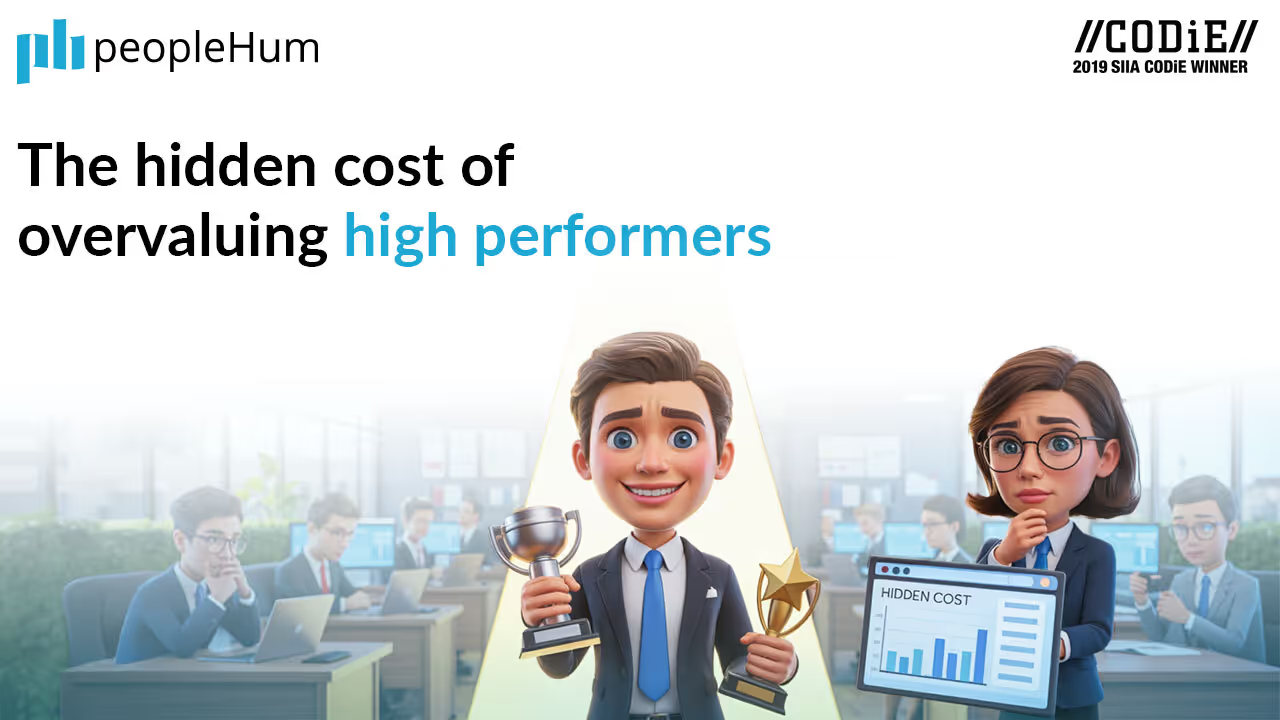A question like this is a gut-punch to traditional corporate hierarchies. Should the rockstar employee, the one who’s outshining everyone, really earn a fatter paycheck than the person signing their performance reviews? Should you take loyalty, tenure, or titles into account. Or should you consider value? Managers often earn more because of their role, overseeing teams, making decisions, carrying the weight of responsibility. But what if an individual contributor, a coder, or a creative, is driving more impact than their manager?
At its core, this debate is about dismantling outdated pay structures and in this HR's are stuck in the middle, trying not to look like they’re playing favorites. Let’s unpack this beast.
Why superstars deserve the bigger paycheck even over the boss
Some employees are worth their weight in gold. These are the irreplaceable superstars who single-handedly close million-dollar deals, write code that saves the company from disaster, or generate ideas that redefine the entire brand. The case for paying a superstar more than their manager is simple and driven entirely by business value: They deliver, and they obliterate KPIs.
The argument for impact over hierarchy
- They drive the business forward: These are the people whose work clients rave about and whose output gets shared in boardrooms. Sticking them with a standard pay-band is insulting; it's like telling a Michelin-star chef to flip minimum-wage burgers. It's an immediate signal to pack their bags. Companies that reward impact over hierarchy are the ones that keep their best talent.
- The paycheck as a cultural signal: Paying a superstar what they're worth isn't just about them; it's a profound culture shift that sets a tone for the entire organisation. It loudly tells everyone that excellence gets rewarded, not just tenure or titles earned.
HR can strategically use this compensation model to light a fire under the entire team, pushing other bouts to step up and strive for that same level of measurable impact.
The risk of losing talent if you don’t pay up
If you're not paying your superstars what they're worth, they aren't sticking around for "growth opportunities" or a pat on the back; they're already updating their LinkedIn. Meanwhile, your competitors are actively ready to poach your best players with better offers.
- Losing impact, gifting talent
When you underpay a high performer, you're losing their direct, high-value impact on your business. If HR remains rigidly stuck on "but the manager earns more," you are effectively handing your competitors a gift-wrapped superstar and guaranteeing a massive, costly productivity gap.
- Buying time and signalling value
Paying superstars is a critical investment that buys you time and signals seriousness. HR must think long-term: the direct and indirect cost of losing one truly great employee from turnover expenses to lost revenue will almost certainly cost more than a few extra bucks on their paycheck.
HR's ultimate dilemma: Balancing fairness and performance
HR seems stuck between a rock and a hard place. Pay a superstar more than their manager, and you risk pissing off the boss. Stick to the org chart, and your best talent might bolt.To escape this no-win situation, HR must be strategic, and decouple compensation from rigid hierarchies:
- Tie pay to measurable outcomes, not just titles: Shift the focus entirely to measurable results (e.g., revenue generated, projects completed, patents filed). This justifies a star's high pay, regardless of their position on the org chart.
- Use variable compensation: Use targeted incentives like large bonuses, project-based commissions, or equity to reward superstars immediately and significantly. This keeps them happy and incentivized without permanently flipping the fixed-salary pay scale or risking pissing off their manager's base salary.
- Establish transparent rules: HR needs to define and communicate clear, objective rules about high-performance compensation. Transparency is the only defense against resentment, allowing you to explain why a superstar receives what they do based on metrics, not favoritism.
How pay gaps affect team dynamics
When a superstar earns more than their manager, it immediately creates an intense social and professional pressure cooker in the workplace. This isn't just an administrative issue; it directly impacts team dynamics and can breed toxic resentment or inspire collective pride.
If managed poorly, the pay gap becomes a severe risk to internal stability:
- Managerial insecurity: A manager may feel deeply threatened or undermined, especially if they are already insecure about their own role. This can lead to them subtly or overtly sabotaging the superstar's career or contributions.
- The focus shifts to money: The team dynamic can quickly decay, with individuals competing for dollars instead of collaborating on goals. Suddenly, the work is secondary to who has the bigger paycheck, replacing shared success with individual rivalry.
- The gossip multiplier: The pay gap fuels rampant speculation and gossip, turning the team's energy away from productivity and toward internal politics.
Use radical transparency and clear metrics to communicate why the pay gap exists, ensuring it's seen as a reward for measurable impact, not a sign of favoritism. Without this, you risk turning a high-performer's success into a bitter grudge match.
The future of compensation: A hybrid approach
The old-school model of paying strictly for titles and tenure is creaking and unsustainable.This is because superstars are actively demanding pay that reflects their immense contribution. The future of compensation is leaning heavily toward merit-based pay, where your paycheck reflects your direct, measurable impact, not just your business card.
While merit is rising, hierarchy isn't dead; managers and organizational structure still matter. The future of pay is almost certainly a hybrid model that HR must strategically design:
- Tools for the hybrid system: This blending will involve new tools and practices, such as: Flexible pay bands, Performance bonuses, equity (stock/shares) for top performers
- Merit-based for agility: Carve out clear space for superstars to earn big based on performance. This requires using tools like flexible pay bands, significant performance bonuses, or strategic equity grants that are tied directly to achieving extraordinary outcomes.
- The rise of merit-based pay: The future trend is leaning toward merit-based pay, where an employee's paycheck reflects their impact and not just their job title or business card.
Wrapping it up
The companies that successfully crack this blend will keep their high-impact talent and remain agile. The ones that cling to outdated, rigid salary structures will be stuck fighting over the scraps. The question isn't just about one superstar's paycheck; it's about whether your company is ready to reward value and impact ?


















































